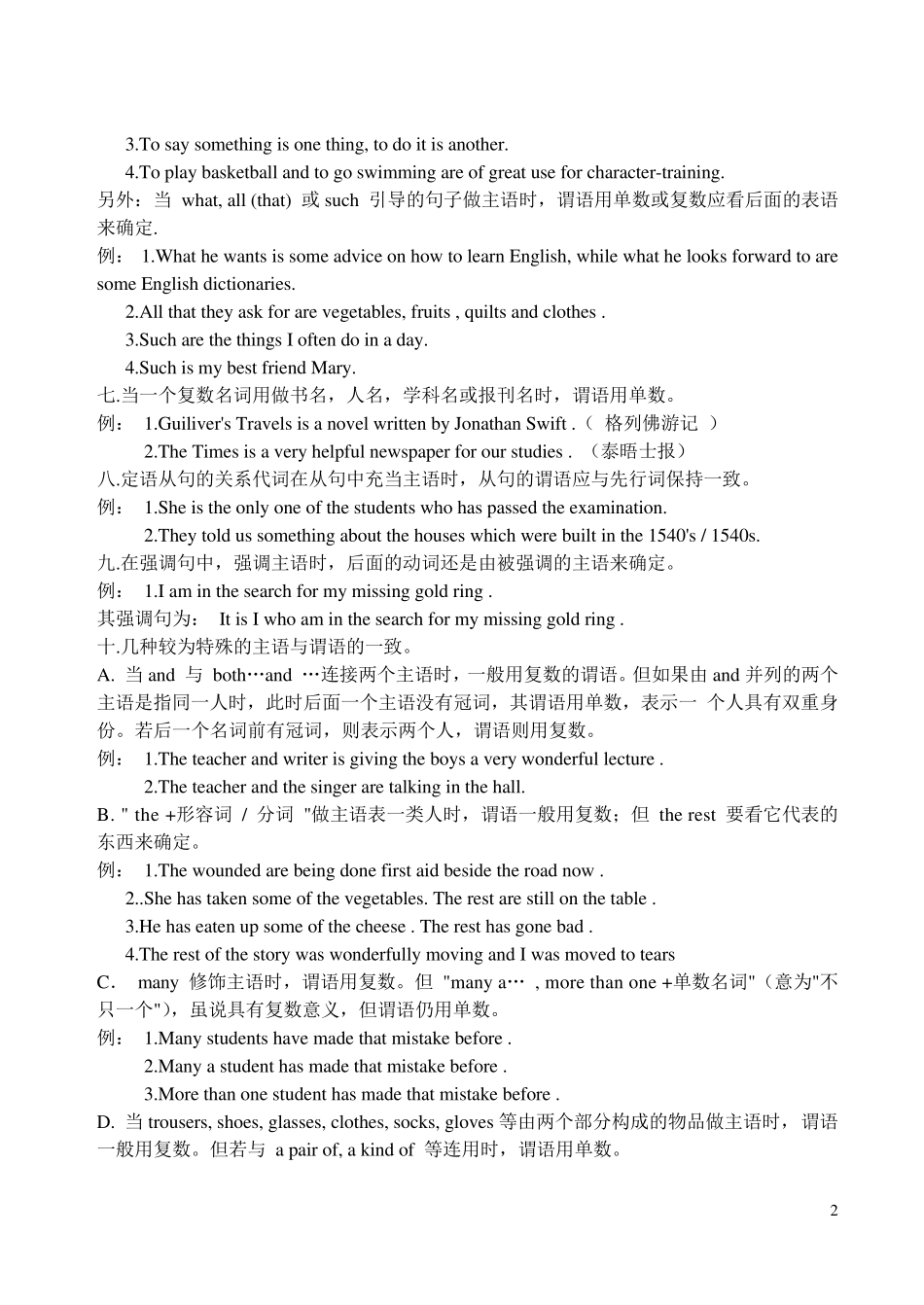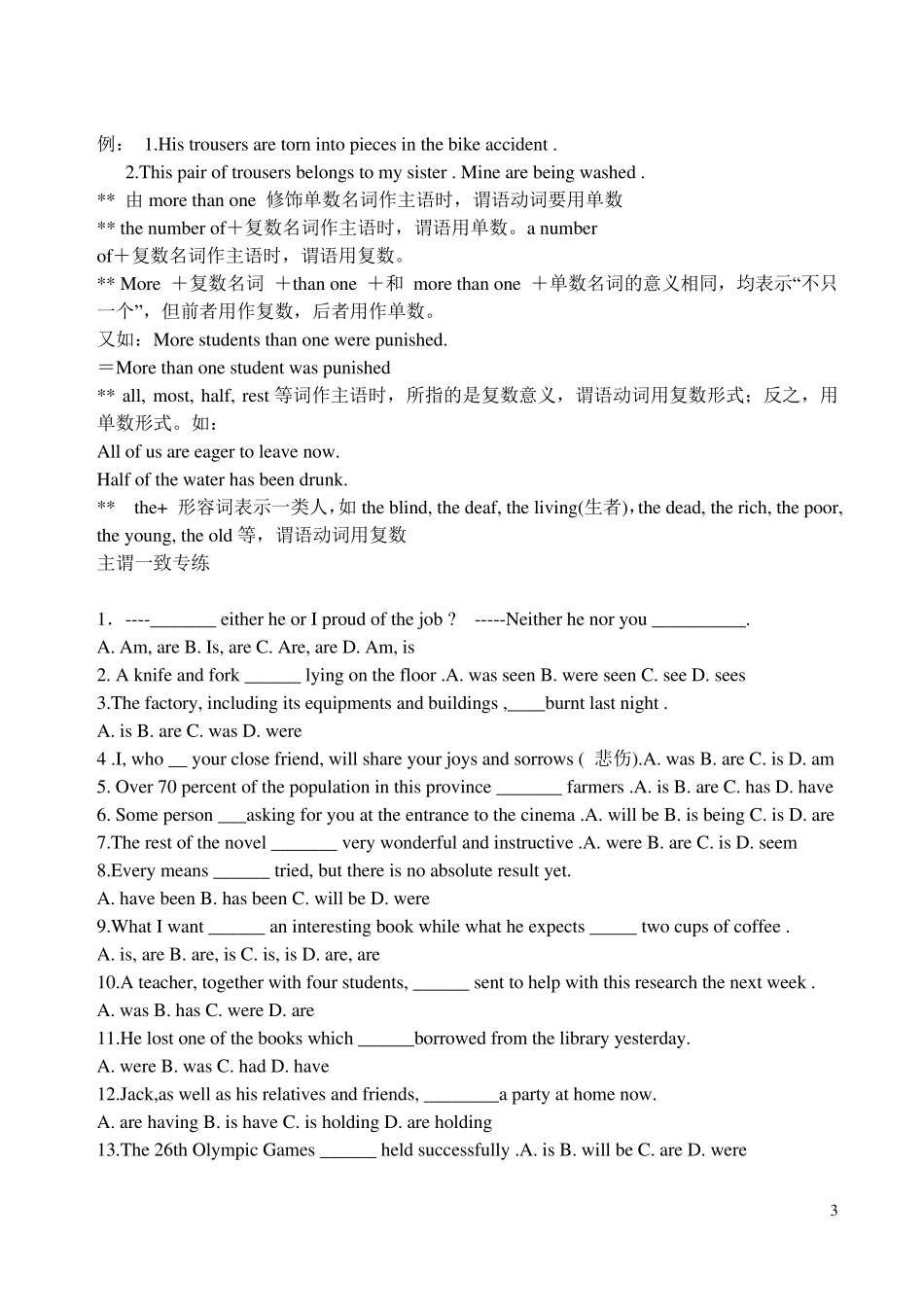1 主谓一致和倒装句 主谓一致 一. 就近原则:在 not only…but also, not…but , neither…nor , either…or , there be… 句型中,谓语动词由相邻的主语来确定。 例: 1.Not only they but also I am going to collect money for the Hope Project. 2.Either you or Jack is about to take the place of the manager. 二. 集合名词做主语,指成员时,谓语用复数;指团体,组织时,谓语用单数:如:class , team, group, family, audience(听众), government, company, crowd, public, enemy, committee(委员会) 等。 例: 1.The class are busy working on the exercises at the moment . 2.The team was an excellent one in the 25th Olympic Games . 三. 当两个名词用 with, together with, as well as, rather than, more than, but, except, besides, along with, including, like 等连接起来做主语时,谓语动词与前面的主语一致。 例: 1.Jackie, with his parents, intends to set out for Europe on business next week. 2.The son, rather than his parents, is responsible for the fire accident. (对火灾事故负责的是儿子而不是父母) 四. 当 each, neither, either 以及由 every, any, no, some 与 one, body, thing 构成的不定代词做主语时,谓语动词用单数。 例: 1.Each of the girls is fond of pop music in her class. 2.Someone is expecting you at the school gate . 但 none 做主语时谓语用单复数都行。 例: None of them are / is interested in local music. 另外:当 every, each, no 做定语时,即使用 and 连接两个主语,谓语也用单数。 例: 1.Each student is preparing for the final examination now. 2.Every boy and every girl is proud of the result of the experiment. 3.No teacher and no student is admitted to enter the place . 4.They each have an English dictionary .(此句中 each 做同位语,谓语由主语 they 确定) 五.当主语表示时间,重量,距离,价格时,谓语动词用单数。 例: 1.Five hundred dollars is quite enough for ...


